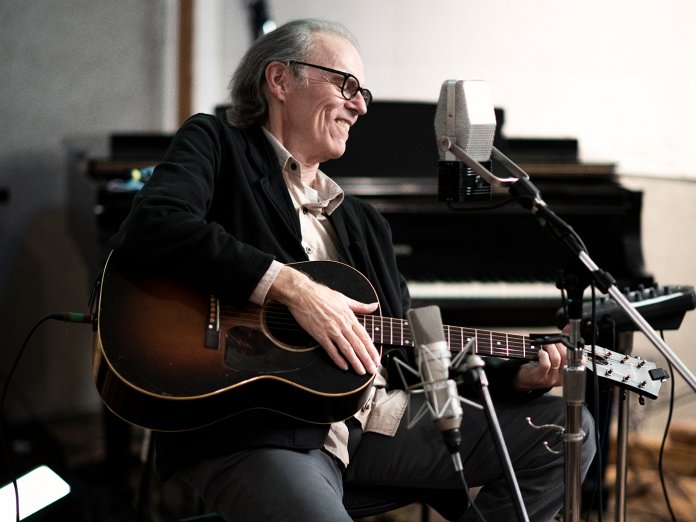Remarkably, given their long shadows and proximity to one another around Nashville, good friends John Hiatt and Jerry Douglas had never recorded together until now. They chose to mark the occasion in style by commandeering RCA’s fabled Studio B – birthplace of the late-’50s Nashville Sound and once home to Elvis, Dolly, the Everlys, Roy Orbison and more.
- ORDER NOW: The July 2021 issue of Uncut
The place is referenced, by way of Waylon Jennings, in the evocative The Music Is Hot, a love letter to the sounds of Hiatt’s formative years. But Leftover Feelings travels deeper and wider through his psyche, taking us through a whole spectrum of emotion. Douglas and his rootsy band prove ideal companions, seasoning these discerning songs with well-judged doses of violin, lap steel and, of course, Douglas’ trademark dobro. Hiatt and co are at their most playful on the spirited Keen Rambler and Long Black Electric Cadillac. The latter, an eco-charged upgrade on the models of rock’n’roll legend, is a countrybilly frolic with real zip. And the playful electric blues of Little Goodnight, first cut by Hiatt in the early ’90s, turns as choppy as its protagonists’ dizzying experience of parenthood.
At other times, Hiatt gets more directly personal. Mississippi Phone Booth alludes to the tipping point of his boozing and drugging days, stuck on the end of a line, looking for some kind of human contact. Similarly, the self-admonishing Buddy Boy – “You can’t drink yourself out of this one/You’re gonna need some help” – feels like a page ripped from a diary.
Most moving of all is Light Of The Burning Sun, which details the suicide of his older brother, aged just 21, and the trauma that subsequently tore Hiatt’s family apart. “Shook the life out of us all”, he sings, over gentle acoustic guitar and Christian Sedelmyer’s mournful violin. At 68, Hiatt is producing some of the best work of his career, mapping his inner life with an eloquence that most can only aspire to.


